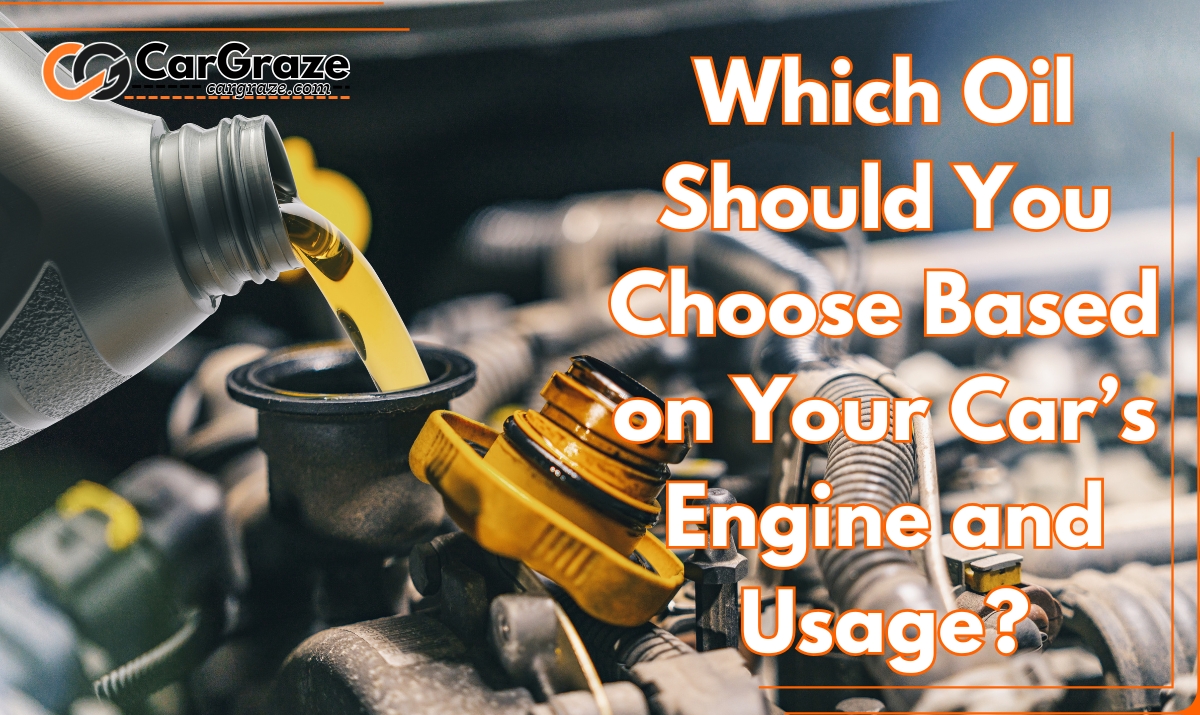
When it comes to maintaining your car’s engine, choosing the right engine oil is crucial. In India, where driving conditions range from scorching heat to chilly winters, selecting the right engine oil becomes even more important. Whether you're a seasoned car owner or a first-time buyer, understanding the types of engine oils and their benefits can save you money and keep your car running smoothly. Let’s dive into the world of engine oils to help you make an informed decision.
Types of Car Engine Oil
Engine oils are broadly categorized into three types: mineral oil, synthetic oil, and semi-synthetic oil. Each type caters to different engine requirements and driving conditions. Let’s explore these in detail, including their price range and lifespan.
1. Mineral Oil
Mineral oil is derived from refined crude oil and is the most basic type of engine oil available. It is affordable and suitable for older vehicles or cars with low engine power.
Benefits:
- Cost-effective.
- Ideal for low-mileage vehicles.
- Easy availability.
Drawbacks:
- Limited performance in extreme temperatures.
- Requires frequent changes.
Price Range: ₹300 to ₹600 per liter.
Lifespan: Approximately 5,000 kilometers or 6 months, whichever comes first.
Best for:
- Older cars with smaller engines (up to 1000cc).
- Cars with minimal daily usage.
2. Synthetic Oil
Synthetic oil is chemically engineered to provide superior performance and protection. It is the best option for high-performance engines and modern vehicles.
Benefits:
- Excellent performance in extreme temperatures.
- Enhanced engine protection and longevity.
- Improved fuel efficiency.
- Longer oil change intervals.
Drawbacks:
- Expensive compared to other oils.
Price Range: ₹900 to ₹1,800 per liter.
Lifespan: Approximately 10,000 to 15,000 kilometers or up to 12 months.
Best for:
- High-performance cars (above 1500cc).
- Cars that experience heavy traffic or long drives.
- Turbocharged and luxury vehicles.
3. Semi-Synthetic Oil
As the name suggests, semi-synthetic oil is a blend of mineral and synthetic oils. It offers a balance between performance and affordability.
Benefits:
- Better performance than mineral oil.
- More affordable than fully synthetic oil.
- Suitable for moderate driving conditions.
Drawbacks:
- Not as effective as fully synthetic oil in extreme conditions.
Price Range: ₹600 to ₹1,200 per liter.
Lifespan: Approximately 7,000 to 8,000 kilometers or 8 months.
Best for:
- Mid-range cars (1000cc to 1500cc).
- Drivers seeking a cost-effective yet efficient option.
Which Oil Should You Choose Based on Your Car’s Engine and Usage?
Choosing the right oil depends on your car’s engine size, age, and usage pattern. Here’s a breakdown:
1. For Small Engines (up to 1000cc):
- Recommended Oil: Mineral oil or semi-synthetic oil.
- Reason: Small engines typically don’t demand high-performance oils, making mineral oil a cost-effective choice. Semi-synthetic oil can be a good upgrade if you drive frequently.
2. For Medium Engines (1000cc to 1500cc):
- Recommended Oil: Semi-synthetic oil.
- Reason: This range of engines requires better performance and protection, which semi-synthetic oils provide without being overly expensive.
3. For Large or High-Performance Engines (Above 1500cc):
- Recommended Oil: Fully synthetic oil.
- Reason: High-performance engines generate more heat and require superior lubrication and protection, which only synthetic oils can offer.
4. For Turbocharged Engines:
- Recommended Oil: Fully synthetic oil.
- Reason: Turbocharged engines operate at higher temperatures and pressures, necessitating the use of premium-quality oils.
Should We Use Engine Oil From Outside of Another Brand Instead of What the Car Manufacturer Recommended?
It’s not uncommon to consider switching to a different brand of engine oil, especially if you’re looking for better performance or cost savings. However, you should tread carefully. While using genuine engine oil from a reputable brand can work, it’s essential to check a few key aspects:
- Specifications Match: Ensure the oil meets the viscosity grade (e.g., 5W-30) and standards (e.g., API or ACEA) specified in your car’s owner manual.
- Approval Ratings: Look for oils that are approved by your car manufacturer. Some brands explicitly list compatible manufacturers.
- Driving Conditions: Factor in your local climate and driving style-stop-and-go traffic or extreme temperatures may require specific oil types.
- Warranty Implications: Using a non-recommended brand could void your car’s warranty in some cases. Confirm this with your car dealer or service center.
Switching brands is possible but only if the oil’s specifications align with your engine’s needs. When in doubt, it’s best to stick with what your manufacturer recommends for optimal performance and warranty protection.
Key Benefits of Using the Right Engine Oil
- Improved Engine Performance: Proper lubrication reduces friction, ensuring smooth engine operation.
- Better Fuel Efficiency: High-quality oils enhance fuel economy by minimizing engine drag.
- Prolonged Engine Life: Using the right oil protects the engine components, reducing wear and tear.
- Optimal Temperature Regulation: Engine oil helps maintain a stable engine temperature under varying conditions.
- Reduced Emissions: Quality engine oils ensure efficient combustion, lowering harmful emissions.
Final Thoughts
Selecting the right engine oil for your car is not just about picking the most expensive option; it’s about matching the oil to your car’s engine type, driving habits, and local conditions. For Indian roads and climates, understanding the distinctions between mineral, synthetic, and semi-synthetic oils can make a world of difference.
Remember to consult your car’s owner's manual or check with a trusted mechanic for specific recommendations. By investing in the right engine oil, you’ll ensure a smoother ride, better fuel economy, and a longer-lasting engine while avoiding unnecessary expenses.
So, the next time you’re due for an oil change, you’ll know exactly what to ask for!



Comments